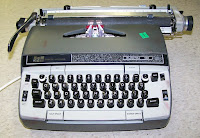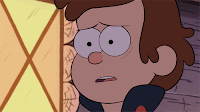Here we are yet again. Welcome back, my captive audience. How’s everybody doing as we enter week… two? Three? How long have you been social-distancing at this point? Yeah, it sucks, but he way these numbers are going there’s a good chance you’re saving someone just by staying at home and… well, reading this.
Anyway, I know originally the A2Q was going to be an every other week thing, but we’re getting to some of the meatier stuff so I just wanted to continue with it. If anyone has any complaints, let me know down in the comments what you’d rather have me prattle on about.
But for now… more A2Q.
It’s finally time to start putting things together. We’ve talked about plot, characters, story, setting, and theme. Now let’s talk a bit about how to put them all together and take a few big steps toward a manuscript.
Also, I’m going to warn you right up front… things are going to get a little vague here. As we get deeper into this it gets harder and harder for me to write out advice because you (yes, I’m talking to you, specifically) are your own person. You’re a writer with your own quirks and habits and preferences. And your story is your story. Nobody knows it like you do. Nobody knows how it should be told better than you. Which means a lot of this is going to be on your shoulders. I can offer you some general guidance, but it’s going to come down to you.
Think of it this way—and this actually ties in well to today’s topic. Let’s say you want to go on a road trip and ask me for advice. I’ve taken a bunch of road trips, but there’s only so much I can tell you without knowing about you, your interests, what kind of trip you want to take, in what direction, and for how long. My advice and experience might not line up with what you want to do. Doesn’t mean what your idea for a trip is wrong, and it doesn’t mean my advice is bad. It just means we all have different ways of doing different things
Also-also… this is kind of a huge step. It might not seem it, but it is. We’re going to take this huge pile of elements, arrange them, connect them, and try to do it all in a way so this contraption of words creates specific emotional and intellectual reactions from people we don’t even know.
Nervous yet? Don’t be. Well, I mean, you can be, but you don’t need to worry about it. We all get nervous at this point. Yeah, seriously. Everyone. Yep, even her. Him too. And her. Okay, no, not him—he’s kinda delusional. Nice guy, but take his advice with a grain of salt.
Also-the-third… speaking of fear, there’s one other really important thing to keep in mind at this point. Absolutely nothing we’re doing is set in stone. It’s not like once I put this element here and connect it to that it’s fused solid and they can never be moved or separated again. They can and they will. Nothing’s locked. We’ll be changing things now, and while we write it, and while we’re editing it. So I don’t need to stress out too much while I’m doing this.
Anyway…
I thought about this for a little bit, and I think there are four big pieces of advice I want to offer you at this stage. Plus a dozen or so links to earlier posts where I’ve talked about some of this stuff in much more detail. When the A2Q gets a book deal, I’ll make sure more of that stuff’s right here, but for now—links.
So, when we’re talking about arranging and connecting all these elements, there are four things I think we need to keep in mind.
—What parts do and don’t belong in my book
—The starting point
—The end point
—How I’m going to tell my story
Let’s talk about each of these and how they relate to that big pile of elements.
First, which of these elements do and don’t belong in my book. Which ones are part of the tale I’m telling and which ones are backstory or character details. I need to sift through them and figure out which ones belong in which pile.
Now, I know the first instinct is to say “it all matters,” and in one sense that’s true. All of these backstory elements and little nuances are going to affect my character and shape the kind of person they are. But that doesn’t mean they all need to be in my book. Some of these things will just stay in my notes or in my head and shape things from there.
Also, we mentioned weeding them out earlier but even so there’s a good chance some of the elements we talked about before that just don’t fit anymore. They’re good ideas, they just don’t work for this particular book, or maybe the book it’s become as I gathered all the different elements and polished them off a bit. The werewolf being a cyborg from the future? Really fun, I bet I could do it well, but it’s not going to fit here. Part of doing this is realizing that and accepting it. Not every idea works for every book.
Don’t worry—if Tor picks this up for a series, we’ll definitely see the time-traveling werewolf by book three.
Second is the starting point. Where am I going to begin my book? What is page one going to be? I think this gets messed up a lot, for a couple different reasons….
One is that, as the writers, we know all the lead-up events, and the impulse is to put them all in. But this quickly becomes a trap, because there are always going to be earlier events that lead to these events. I don’t want to start with the police detectives at the crime scene, I want to start with the jogger finding the body. Except I don’t want to start with finding the body, I want to start with the murder. Except I don’t want to start with the murder, I want to begin where the murder was being planned. Except I don’t want to start with the murder being planned, I want to see the event that pushed her into killing him. Except I don’t want to see that event…
See what I mean? We can always go further back. So one of our jobs is to figure out where do things actually begin for my heroes.
Another way this gets messed up feeds a bit off the last one, and it’s the old “start with action” thing. I’ve talked about this at length before, but essentially it’s a piece of advice that gets misunderstood a lot by people starting out. They twist their outline to begin with exploding cyborg ninja conflict when it might just need two people arguing about laundry from different ends of their house.
Finally, feeding off both of the last points, I think there’s some other bad advice out there that usually takes the form of “get into it as quickly as possible.” Again, this advice isn’t wrong, it’s just lacking context. Which is kind of my point—if I dive into the story too fast I won’t have time to establish any sort of norm for my heroes. Without that context—the bar to measure everything else in the book against—things won’t have the proper weight and I’ll just be confusing my readers. So I don’t want to spend five or six chapters on my hero’s normal, day-to-day life, but I can’t neglect it, either.
Third is the end point. No matter what kind of road trip I’m planning, I need to have some idea where I want to end up. Maybe this is just a long weekend away and we’re going to end up back home. Maybe it’s a longer-than-necessary trip to visit a friend. Maybe I’m moving cross country.
Whatever kind I decide it is, it’s hard to have any sort of structure if I don’t know where I’m going. I can’t tell if I’m going the right way when I don’t know what direction the right way is. It becomes less a book and more of a firehose with nobody holding the end, just thrashing around and spraying water everywhere as it slams into things.
 Keep in mind, I don’t need to know exactly where I’m going. For road trip purposes, I can just say “I’m gonna drive to Los Angeles.” I don’t need a specific part of town or a street address or the name of a nice restaurant for dinner. I can figure out the details when I get there. But I want to have enough sense of my ending that I can say “I need to head north-west from here.”
Keep in mind, I don’t need to know exactly where I’m going. For road trip purposes, I can just say “I’m gonna drive to Los Angeles.” I don’t need a specific part of town or a street address or the name of a nice restaurant for dinner. I can figure out the details when I get there. But I want to have enough sense of my ending that I can say “I need to head north-west from here.”
And also… there’s nothing wrong with deciding to change destinations halfway through. Maybe I’m going to shoot straight through LA and head for San Francisco. Maybe I’m going to veer off and spend a long weekend in Las Vegas. Or out a Joshua Tree. But at any given point, I should be able to say “I’m trying to get to there.”
Fourth and last of these key things is how I’m going to tell my tale. How am I going to arrange things in an interesting, compelling narrative that also creates ongoing, climbing tension? Do I want to use a straight linear narrative? A series of flashbacks? Am I going to have a completely non-linear structure?
All of these are big questions. In the past I’ve talked about structure and it usually covers three pretty big posts. I’m not going to go over them all at length here, but in my opinion it’s always best to make sure my linear structure makes sense before I try to work in lots of flashbacks, time shifts, or the like. There haven’t been a ton of studies that I know of, but I think readers always know, on some level, if a book doesn’t make linear sense.
 But past that, a lot of this is going to depend on you and your tastes. It’s how you want to tell your tale, after all. Maybe you want to start simple, or maybe you’re going straight to the most complex, interwoven plot you can manage. That’s all your choice, and you’ll need to think about it as you start outlining.
But past that, a lot of this is going to depend on you and your tastes. It’s how you want to tell your tale, after all. Maybe you want to start simple, or maybe you’re going straight to the most complex, interwoven plot you can manage. That’s all your choice, and you’ll need to think about it as you start outlining.
Speaking of which…
With those four things in mind, let’s try to make some kind of outline. Again, this is something I’ve talked about a couple times before, so I don’t want to talk too much here (look how big this is already). But let’s try to address a few things.
You’ve probably got a ton of plot and story points piled up so far. Little snippets of dialogue, cool action moments, neat reveals, maybe some good character beats. For now, let’s just deal with plot and story elements. Try to get them more or less together in one document. What do you have, two or three pages? More?
What I generally do at this point is start rearranging things. I want to put all these in some kind of order pretty close to my story. I think a quick, easy tool here is basic three act structure. Beginning, middle, end. Grab any plot element out of your pile. Seriously, look at your list, close your eyes, point your finger at something.
Now, gut reaction, is this element from the beginning, the middle, or the end of your book? Is it one of those basic establishing/introducing/setting-things-up points? Is it one of the last big twists? Don’t think about it, just drop it where it goes. You’ve probably already got a sense of where these things belong, so don’t overthink it for now. Remember—if it doesn’t work, we can always fix it later.
Once you’ve got them all arranged, read through it. Does it make sense? Does it feel like it’s lacking anything? If there’s stuff you’ve kept in your head (there’s always a few things) feel free to jot those down now, too. If you want to swap a few things around, that’s cool too. Just poke at it for a day or three until it feels like a loose summary of your story. Not a complete one, but I want enough of one that I can see the shape of it.
That thing in front of you is an outline. A simple one, but that’s what it is. If we’re talking about a road trip, this is our rough map. Or maybe an itinerary? Little of both, really.
And this brings us back to another “up to you” moment. Maybe this simple outline’s enough for you. Your brain’s buzzing to get to work, to start writing. If that’s the case, go for it. But if you want a little more that this—if you want a more detailed map or a few more things locked down on the itinerary, that’s cool too. Start pulling in your character elements, maybe add a few setting details where they’d be relevant.
For my first book, Ex-Heroes, I barely had an outline. One page of random notes, most of them about characters, a lot of stuff still in my head. For my last book, Terminus, the outline was 23 pages long. And for this new thing I’m working on, I think I had three pages of notes when I launched into it. It’s going to be different for every writer and it’s going to be different for every book. So don’t worry if yours is “right” or not. Just work with it until you think it’s enough to keep you on track from the beginning to the end.
All that said… let’s toss down a few elements of our werewolf story, move them around a bit, and see what we end up with. It’s going to be rough because it’s just for me. You’ll probably recognize a couple of these elements from earlier A2Q posts…
+++++
Start with Phoebe and Luna at home. Both getting ready to go out for the evening, but Luna’s heading out to another party and Phoebe’s going hunting. So they’re looking for things, asking who borrowed what, warning each other to be safe, and so on.
Phoebe’s going to be out hunting and encounter the super-werewolf (although she doesn’t know it’s super yet, or who it is). She’s going to put a silver crossbow bolt in it and it’s going to ignore it and run off. This will also give her a chance to grumble about losing a silver bolt because they’re expensive. She can track it for a while, find the bolt… but no body.
The next morning Phoebe goes to the lodge and we meet Luc and talk about hunting last night, if he saw anything noteworthy. Maybe some one-sided flirting?
Intro. Andrea. Maybe Andrea’s actually the head of the lodge. Warden? That sounds Masonic without going all weird with “master.” She’s willing to entertain the ‘super-werewolf” idea, and will pay an extra $2500 bounty for proof.
Down to check in with Quinn. Crossbow took a beating last night. One knife needs a nick ground out of it.
Gets a call from her job at the bar—she’s late, supposed to be there for deliveries.
Go to the bar, intro. her “norm” boss.
Work night.
After work??
Breakfast with Luna the next day. Talk about the bounty, using it to pay for college?
+++++
It’s very, very loose, but I think that’s eight or nine chapters right there. Into the second act, easy. It’s also very straightforward and linear. I’d write out more of it, but as I mentioned… this is getting ridiculously long.
One thing that immediately occurs to me—and I’ve come up against this before—werewolf stories have an inherent time limit built into them, especially if I want to go “classic” light-of-the-full-moon werewolves. And that is… the full moon only comes out every four weeks. So I’m looking at a lot of time here with, well, no werewolves in it. I’ll need to space a few things out and skip over some time. Which won’t be a huge problem since I’ve already said Phoebe’s stuck with a normal job and Luna doesn’t know she’s the werewolf.
What I might do, right now, is take the bit with Quinn and drop it down to the bottom of this little outline fragment. So that just became another day. Plus, now it means Phoebe’s getting that call from her day job while she’s in her meeting with Andrea, which can create some fun.
And at this point, forget about writing a book—I’m worried the sheer size of this post might be intimidating to some of you.
Get your elements. Organize them. Make your road map, and make it as simple or detailed as you like.
Next time… our first draft.
Until then, go write.













